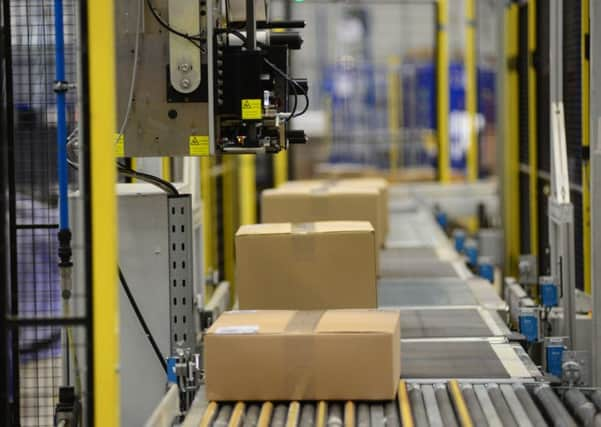Stephen Martin: Rates rise risky gamble for small firms


Imagine that you are driving towards the Humber Bridge. When you reach the toll booth, the attendant tells you that they’ve put another new payment system in place. Normally the toll is £1.50, but you’re being given a choice. Either you can accept a slightly higher toll, £2, or you can gamble. If you gamble, you could win £20. Or you could lose, and be forced to pay £20 to cross. Do you pay the £2, or do you gamble?
If you would choose to gamble you have a greater taste for risk than me and, I strongly suspect, most business leaders. That is the reason I wanted to try this experiment, to get you thinking about one of the most pressing issues for companies at the moment – business rates.
Advertisement
Hide AdAdvertisement
Hide AdThis tax on the ‘rateable value’ (essentially the rent) of business premises is not normally front-page news. But it has been because companies are up in arms about the revaluation that kicks in this year, with some firms facing large increases in their bills. This includes pubs, which face an overall hike in rates of £421m over the next five years.
The source of the problem is that rates have not been revalued for seven years. Normally, the process is conducted every five years, but the Government decided in 2015 to postpone it for two years, pushing it beyond the General Election. This has left some businesses with a nasty surprise, as the tax changes abruptly this year.
The Government says that around 500,000 companies will see their rates rise, while they will remain unchanged for 400,000 and fall for 900,000. Some businesses in here will come off well, and it is true that most of the steepest rises will come in London where properties prices have risen considerably.
Having run the Clugston Group in Scunthorpe for 10 years, I thoroughly support the idea that rates should reflect the market in different parts of the country, but there is still reason for companies to feel aggrieved about the way this process has been handled.
Advertisement
Hide AdAdvertisement
Hide AdGoing back to my experiment, normally businesses see their rates go up by the Retail Prices Index, which is currently just under three per cent, but this year they are being forced to gamble. They could win, and see their rates fall by thousands of pounds, or they could lose, and see them go up by thousands. Above all, businesses value predictability.
So what do we think should the Government do? In the short term, it has to focus on the small firms. There is currently tax relief for business in properties with a rateable value of up to £15,000, but this really only helps micro-businesses. The Institute of Directors has called on the Chancellor to use his Budget to raise this threshold so that companies in premises worth up to £100,000 benefit. This would blunt the impact for pubs and shops struggling to compete.
This brings me to a much bigger issue. Internet giant Amazon is set to see its business rate bill fall for its warehouse in Doncaster, while small booksellers and other shops face rises. This comes down to the fact that many of Amazon’s warehouses are located in places where property prices have fallen since the last revaluation.
Amazon and other online shops shouldn’t be blamed for this – they didn’t design the system, but it does show how out-dated the whole business rate system now looks.
Advertisement
Hide AdAdvertisement
Hide AdThe UK economy has changed rapidly in recent years. British consumer now buy around £1bn worth of goods online every week, about 15 per cent of all retail spending. By some estimates, the UK has the largest digital economy of any developed nation, and yet we have a tax system which still thinks in terms of floor space and footfall.
The tax system is also struggling to deal with is the rise of the so-called gig, or platform economy. Pretty much anyone with a car or a bike can now log onto an app on their phone and start acting as a taxi, or delivering take-aways. The Government is concerned this is driving a rise in the number of self-employed, who are taxed less than employees.
There is risk that the playing field for online versus bricks-and-mortar shops, and for employed and self-employed, is becoming less and less even. We urge the Chancellor to launch a ‘new economy tax commission’ to look at levelling the field. Online shopping and new platforms are popular with consumers because they are so convenient. We shouldn’t seek to stifle these trends, but we do need a tax system that keeps up with them.
Stephen Martin is Director General of the Institute of Directors.